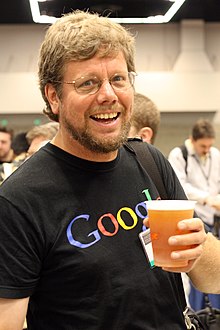WHAT IS PYTHON ?
Python is a widely used high-level programming language for general-purpose
programming, created by Guido van Rossum and first released in 1991.
An interpreted language, Python has a design philosophy
that emphasizes code readability (notably using whitespace indentation
to delimit code blocks rather than curly brackets or keywords), and a
syntax that allows programmers to express concepts in fewer lines of code than
might be used in languages such as C++ or Java.
The language provides constructs intended to enable writing
clear programs on both a small and large scale.
Python
features a dynamic type system and automatic memory management and
supports multiple programming paradigms, including object-oriented, imperative, functional
programming, and procedural styles. It has a large and
comprehensive standard library.
Python
interpreters are available for many operating systems, allowing Python
code to run on a wide variety of systems.
CPython, the reference implementation of Python,
is open source software and has a community-based development model, as do nearly all of
its variant implementations.
CPython is managed by the non-profit Python Software
Foundation.

Guido Van Rossum the creator of Python
The core philosophy of the language is summarized by the
document The Zen of Python (PEP 20), which includes aphorisms such as
·
Beautiful is better
than ugly
·
Explicit is better
than implicit
·
Simple is better than
complex
·
Complex is better than
complicated
·
Readability counts
Rather than requiring all desired functionality to be built into
the language's core, Python was designed to be highly extensible. Python can
also be embedded in existing applications that need a programmable interface.
This design of a small core language with a large standard
library and an easily extensible interpreter was intended by Van Rossum from
the start because of his frustrations with ABC, which espoused the opposite mindset.
Python's development is conducted largely
through the Python Enhancement Proposal (PEP) process. The PEP process is the primary mechanism
for proposing major new features, for collecting community input on an issue,
and for documenting the design decisions that have gone into Python.
Outstanding PEPs are reviewed and commented upon by the Python
community and by Van Rossum, the Python project's Benevolent Dictator For Life
Subscribe to:
Comments
(
Atom
)



No comments :
Post a Comment